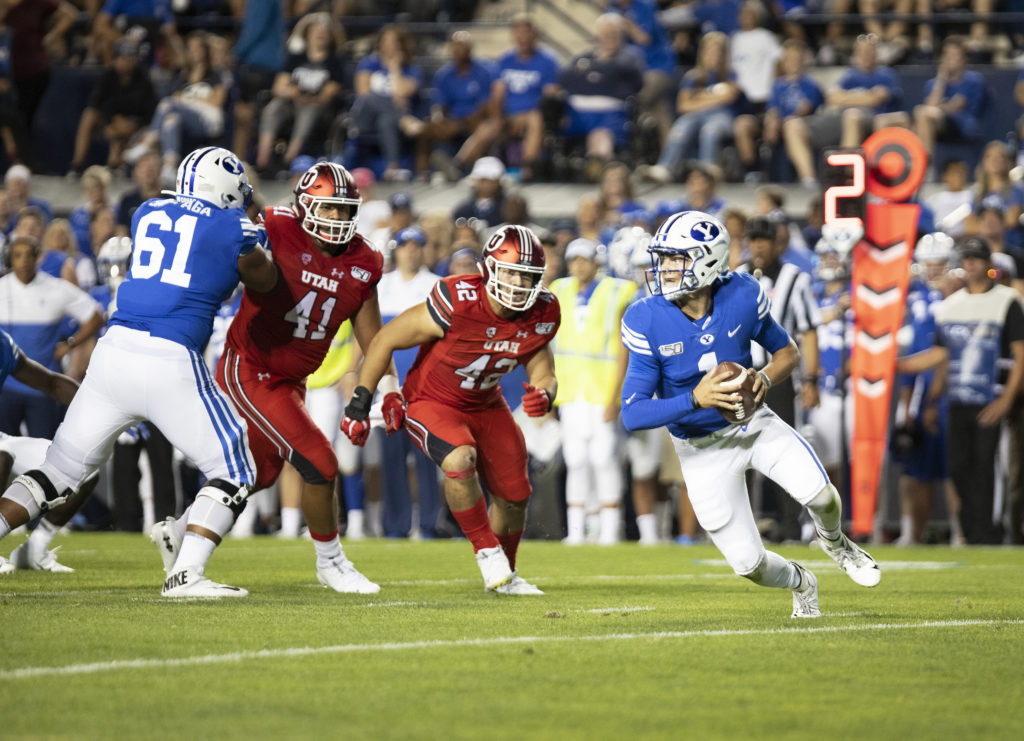
BYU quarterback Zach Wilson went down against Toledo on Sept. 28 with what appeared to be a serious hand injury. Though there has yet to be an update on the status of his hand, he was seen with a cast, and head coach Kalani Sitake said Jaren Hall would be the starter against the University of South Florida on Oct. 12 following a bye week.
Speculating on the effect of the injury, a fractured hand would likely take up to three weeks to heal. There generally aren’t any long-term implications of a fractured hand, but sometime the hand can’t close the same. If Wilson’s injury is the same magnitude of what happened to New Orleans Saints quarterback Drew Brees in week two of the NFL season, Wilson could be out for 6-8 weeks. Brees suffered a ligament issue in his thumb that required surgery.
Hall, according to Sitake, will be BYU’s starter when the Cougars travel to Florida following a bye week. Hall impressed during spring camp and emerged as one of BYU football’s most promising athletes as he also took to the field for BYU’s baseball team. During his time on the diamond, Hall showcased his athleticism with many highlight-reel catches in the outfield in addition to tallying clutch hits at the plate. Many times, Hall would finish football practice and join his baseball teammates late in the game, meaning he would eat dinner in the dugout in between making big plays for the baseball team.
Hall is a redshirt freshman that has yet to make a start at the collegiate level. In the time that he has played, he’s gone four for seven for 58 yards and holds 126.74 quarterback efficiency rating. The Spanish Fork native will be the first African American quarterback to start for BYU.
Aside from the Wilson news, BYU’s rush defense is also worth noting. The Cougars have seen nothing but struggles when it comes to rush defense, now sitting at 118th in the nation for rushing yards allowed per game with 220.8 yards allowed per game on the ground.
Teams tend to have more rushing attempts when playing BYU, which correlates with the number of rushing yards allowed per game, but that is likely tied to the fact that BYU struggles against the run. BYU sits second in the country in the number of rush plays faced with its opponents electing to run the ball 237 times, an average of 47.4 run plays per game.
BYU’s five opponents in 2019 — Utah, Tennessee, USC, Washington and Toledo — have a combined average of 178 rush attempts on the season. Combining this with the number of games each team has played, BYU’s five opponents average 38.8 rush attempts per game, 8.6 fewer attempts than what is averaged against BYU.
Going forward, if the Cougars look to salvage what’s left of their schedule that includes games against No. 16 Boise State, Utah State and San Diego State, they will need to figure out their run defense.




